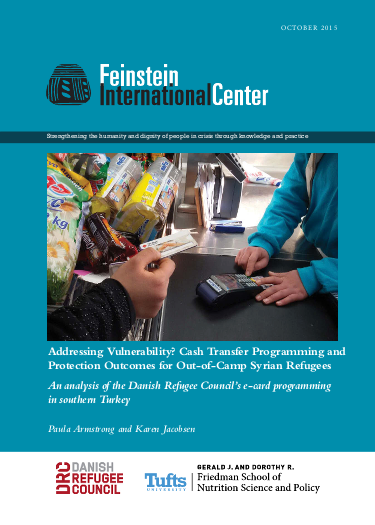An analysis of the Danish Refugee Council’s e-card programming in southern Turkey

In the summer of 2015, a research team from the Feinstein International Center (FIC) at Tufts University spent three months embedded with the Danish Refugee Council (DRC) in southern Turkey as part of an “action research” collaboration. The Tufts task was to analyze the successes and shortcomings of the methodology used to design and implement a supermarket e-card program for out-of-camp Syrian refugees being implemented by DRC. The Tufts team analyzed DRC’s household profiling questionnaire and assessment methodology, including the vulnerability scoring index used to target households for assistance. Field research with Syrian refugees explored the protection- and gender-related impacts of the cash-based intervention (CBI) on beneficiaries. This report describes these findings, beginning by briefly reviewing how vulnerability is defined and operationalized, particularly in the Syrian refugee context, and then provides recommendations for improved practice.